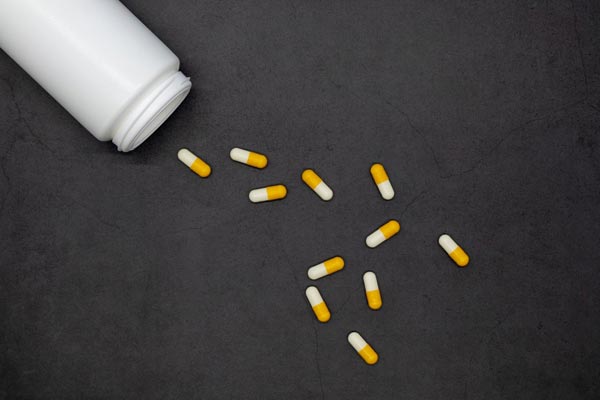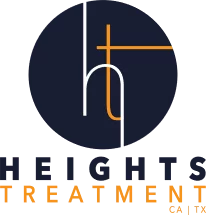Table of Contents
Substance abuse will quickly develop into addiction if ignored for too long. Addiction has a detrimental impact on the person abusing substances and their family members and friends.
In this article, we’re taking a closer look at the effects of substance abuse on family members and the impact on family roles.
Effects of Substance Abuse on Family Members
Families operate similarly to our physical bodies. When one part suffers, the whole system reacts. When one of our family members is caught in the trap of substance abuse and addiction, the surrounding family members can be thrust into a chaos that they never intended or expected. Fear, worry, hopelessness, and depression can take root and extend throughout the family network.
Becoming aware of the effects of addiction on those who are not directly using the substances is a first step toward taking control of the effects and outcomes.
Here’s what you need to know about the effects of substance abuse on family members and their roles.
Family Roles in Addiction
As our perspective has grown regarding mental health and the effect that our social environment has on our behaviors, it has become apparent that an addicted person doesn’t operate in isolation.
The dynamics and interactions that exist between family members often play a part in sustaining undesirable behaviors. In their desire to help, family members may be unwittingly perpetuating the problem.
The following are some of the typical roles that family members of an addicted person can find themselves in. These roles are interchangeable, and even the addicted person may have been in one, or another, before developing the addiction. Take some time to consider whether your role in the family dynamic is working against progress toward healthy recovery for your addicted loved one.
Enabler
Falling into the role of being an enabler is one of the easiest things to do as a family member. Our care and concern for our addicted loved one can override reason and calculated response to the situation.
We will want to believe the best about the person, even when the circumstances don’t provide any evidence for success. An enabler can take many forms, but the crux of it lies in continuing to supply the addicted person with the means to continue self-destructive behavior. This can include providing ongoing money, housing, food, transportation, or other resources. It can also include making excuses for why the addicted person doesn’t seek help. Taking on the role of an enabler is self-sabotaging your desires for your loved one to change.
Mascot
Most people can think of the person who plays the clown role at family gatherings.
In family dynamics, this person is referred to as the Mascot. A person in the mascot role tends to be highly aware of the gravity of the addiction situation and is likely to acutely feel the stress and worry of having a loved one trapped in addiction.
Rather than expressing this concern as distress, the mascot will attempt to bring some relief to the negativity by keeping things lighthearted and humorous. While this approach brings short-term relief, continuing to rescue an addicted person from the seriousness of the situation does little to move the family member toward lasting change.
The mascot is also at risk of developing mental health problems due to avoiding addressing their stress.
Hero
In family dynamics, one person tends to be ascribed to the hero role. Most often, this will be the oldest sibling who will take on the task of upholding the family reputation through accomplishments and overt displays of righteousness.
This family member may be used as an example that the addicted person is compared to, indicating that they are not good enough until this standard is met. This type of comparison of roles can defeat the addicted person, as the likelihood of a family having more than one hero is low.
The family member in the hero role suffers, as well, due to the unceasing pressure to compensate for the perceived lack that is generated by the one who is absconding from the family through addiction.
These roles stand in contrast to the roles that the addicted person will often find themselves identifying with. For positive changes to occur within the family system, the part that the addicted person plays must also be addressed. Some of the descriptions that can be applied to the addicted family member include the following:
Scapegoat
For these other roles to be maintained, there has to be a basis of comparison established. For there to be a martyr, there has to be something to sacrifice. To be a hero, there must be something to overcome.
For there to be good people, there must be someone to blame for what is going wrong. This subject of blame is known as the scapegoat, and an addicted person often takes the blame for any ongoing family dysfunction.
Identified Patient
In family therapy, there is a term for the person who is pointed out as the reason that help is being sought. This person is known as the Identified Patient.
A trained therapist knows that this individual is not the cause of family problems but is rather a representation that the entire family system will benefit from some psychoeducation and rebalancing of roles. In the case of addiction, it is very often the addicted person who prompts the family to come in, but the whole family will benefit from family support.
Establishing New Roles and Rules
Once family members have become aware of the parts they are playing in the family dynamic of addiction, there is an opportunity to reshape the playing field.
Family members can benefit from learning how to respond to their addicted loved one appropriately and establish boundaries for their self-care. Enablers can begin to reduce the behaviors which feed the continuation of addiction while increasing the behaviors which communicate to the addicted person that they are unconditionally loved.
Mascots can recognize that the continual defusing of the tension can sometimes be counterproductive and can be encouraged to face the uncomfortable feelings with a more direct approach.
Those in the hero role can benefit from deciding to take some of the weight of the world off of their shoulders and increasing the practice of compassion for themselves and others.
Conclusion
Now that you know more about the effects of substance abuse on family roles, you might consider contacting a professional for guidance.
Overcoming addiction is a challenge, especially when it involves several family members. For the best results, we recommend working with a team of professionals. This will help avoid potential problems among family members, which is important.
The Heights Treatment Editorial Guidelines
There is a vast amount of misinformation online especially as it relates to health & wellness. We have made it our mission at The Heights Treatment to provide accurate, medically sound content that has been medically reviewed by a doctorate level clinician so that you can trust the information contained within our website.




